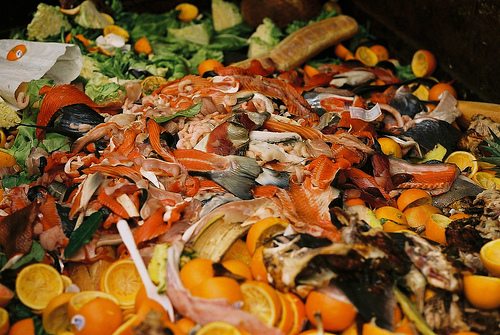

Energy
Green Investment Bank-funded anaerobic digestion plant opens in London
The TEG Biogas plant in Dagenham – London’s first commercial-scale plant – has been inaugurated on Wednesday and will turn up to 50,000 tonnes of waste into green electricity each year.
Anaerobic digestion is a way to produce renewable energy, such as biogas, from organic material.
The newly opened plant is located within the 60-acre London Sustainable Industries Park (LSIP) in Dagenham owned by the Mayor of London.
It will produce around 1.4MW of renewable electricity every year from household and business waste. In addition it will produce a thousand tonnes of compost for agriculture. The project – which has been delivered on time and on budget – will allow the treatment of up to 50,000 tonnes of organic waste to be turned into energy.
Shaun Kingsbury, CEO of the UK Green Investment Bank, which partly funded the project, commented, “This project is an important first for London and provides a positive demonstration of a fully integrated renewable energy and waste management project.
“The anaerobic digestion and composting facility will see waste, which could have been sent to landfill, now being used to create renewable energy and heat as well as compost and digestate for the agriculture sector.”
The Mayor of London Boris Johnson added, “I welcome the opening of this fantastic new project. It is great news for the local area and it shows that the London Sustainable Industries Park can deliver low carbon energy, jobs, innovation and growth for London.”
Business secretary Vince Cable, who inaugurated the plant, welcomed the facility as an “environmentally friendly way to manage London’s waste and generate power”.
Photo: Taz via flickr
Further reading:
Green gas could provide renewable heat to 30,000 UK homes by 2015
£1.3bn invested in UK clean energy infrastructure in 2013
Anaerobic digestions deserves its time in the spotlight
Renewable heat incentive to boost ‘financially attractive’ alternatives to oil


 Features10 months ago
Features10 months agoWhat is the Eco-Friendliest Option to Wash Your Dishes?

 Environment12 months ago
Environment12 months agoBuilding a Career in Green Construction: Tips and Insights

 News11 months ago
News11 months ago5 Ways Fleet Maintenance Software Can Help Businesses Be More Eco-Friendly

 Features10 months ago
Features10 months agoAddressing Pressing Ethical Concerns with Crypto Exchanges





























